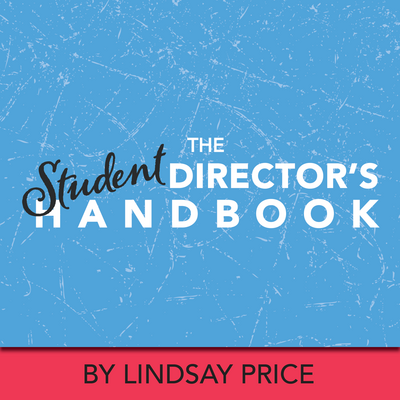Theatrical Time Management for Students
Students are busy people. Drama students are no exception! They’re constantly juggling rehearsals, learning lines, working backstage, preparing for auditions, performing in shows (often all at the same time)–on top of the rest of their daily responsibilities! It’s pretty rare to see a theatre person only working on one project at a time.
While multi-tasking can be great, it can also lead to stress, burnout, and schedule clashes. Read on for seven helpful tips to share with students to help them manage their lives–including school, part-time jobs, social lives, and (of course) theatrical rehearsals and conflicts. (This advice is useful for non-theatre students too!)
1. Get a planner and use it
Some schools even provide students with planners for free–there’s no excuse. Get a planner, and use it! Don’t assume you will remember everything. Write down all your commitments (and this means EVERYTHING—school, part-time jobs, lessons, rehearsals, show dates, appointments, etc.). Writing things down cements the commitment in your mind. Colour-code each commitment if you have to. Don’t forget to schedule in time for things like homework, chores, and social events.
2. Keep a to-do list in your planner
Check things off as you accomplish them. It’s so satisfying to see all those tasks accomplished!
3. Plan ahead
If you’ve got rehearsal the night before a big assignment is due, don’t leave that assignment until the last minute. Missing rehearsal to complete an assignment lets down the rest of the cast and crew. For bigger assignments and larger tests, it can help to break down your tasks into smaller chunks and assign yourself due dates. For example, for a large written assignment, you could break down your steps into research, outline, first draft, revise, final draft. Spread those dates out between now and the day the final assignment is due. Put those dates into your planner and stick to the dates–it’ll help you reduce stress in the long run.
4. You will have to make sacrifices.
Which is more important—performing in a show or going to a school dance? Do you have enough hours in the day to be head of costumes AND sing in the choir? Will your part-time job allow you to book off all of show week to run lights? Only you can make these tough decisions. You can’t do everything. There are just not enough hours in the day. Decide what the most important thing to you is and focus on that.
Know what is an acceptable reason and a bad reason to miss rehearsal.
- Acceptable reasons to miss rehearsal: illness or a previously planned (and approved by the teacher/director) commitment or vacation.
- Bad reasons to miss rehearsal: last-minute tickets to an event, feeling tired from a previous night’s social outing, getting stuck in traffic (leave earlier!), finishing an assignment you procrastinated on, or you “just didn’t feel like going.”
The only acceptable reason to miss a show is because you are sick or injured enough to go to the hospital. Pretty much any other reason is unacceptable.
5. If conflicts do occur, be upfront and honest RIGHT AWAY.
Tell your teacher/director about conflicts as soon as they occur—even before auditions happen, if possible. It might affect whether you are cast in the show and what role you get. But it’s not fair to the rest of the cast and crew if you get cast, then inform everyone that you have to miss every single Monday rehearsal because of soccer practice.
6. Whatever you do, don’t lie or vanish.
You don’t want to be known as the person who is unreliable. Your present choices can affect future opportunities. For example, if you commit to run the spotlight for the upcoming production, but then drop out a week before tech rehearsal, not only are you letting down the rest of the cast and crew, but your teacher may think twice about letting you work on a future show. Your reputation is important—don’t let it haunt you. Be committed.
7. Remember that you are not the only person in this show.
You are part of a team. When you miss rehearsal, it affects everyone else. It’s like the butterfly effect—one change creates a series of changes that alters life as we know it. In this case, “life” is the time spent in rehearsal. If you miss rehearsal, time has to be spent to re-teach you the stuff you missed; you might miss out on important notes or big changes; or you might be removed from the scene altogether.
Related Articles
The Student Director's Handbook
by Lindsay Price
Help students take their show from first audition to opening night with The Student Director’s Handbook. This easy-to-use ebook is full of guidelines, tips and templates designed to help students create a vision, circumvent problems and organize rehearsals on their way to a successful production.
The Rehearsal Companion
by Kerry Hishon
You’ve chosen the play, paid the royalties, done the script analysis, held your auditions, and cast the show. Tomorrow is the first rehearsal. Are you ready? Really ready? The Rehearsal Companion can help!





